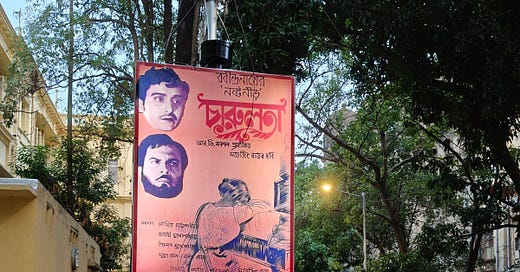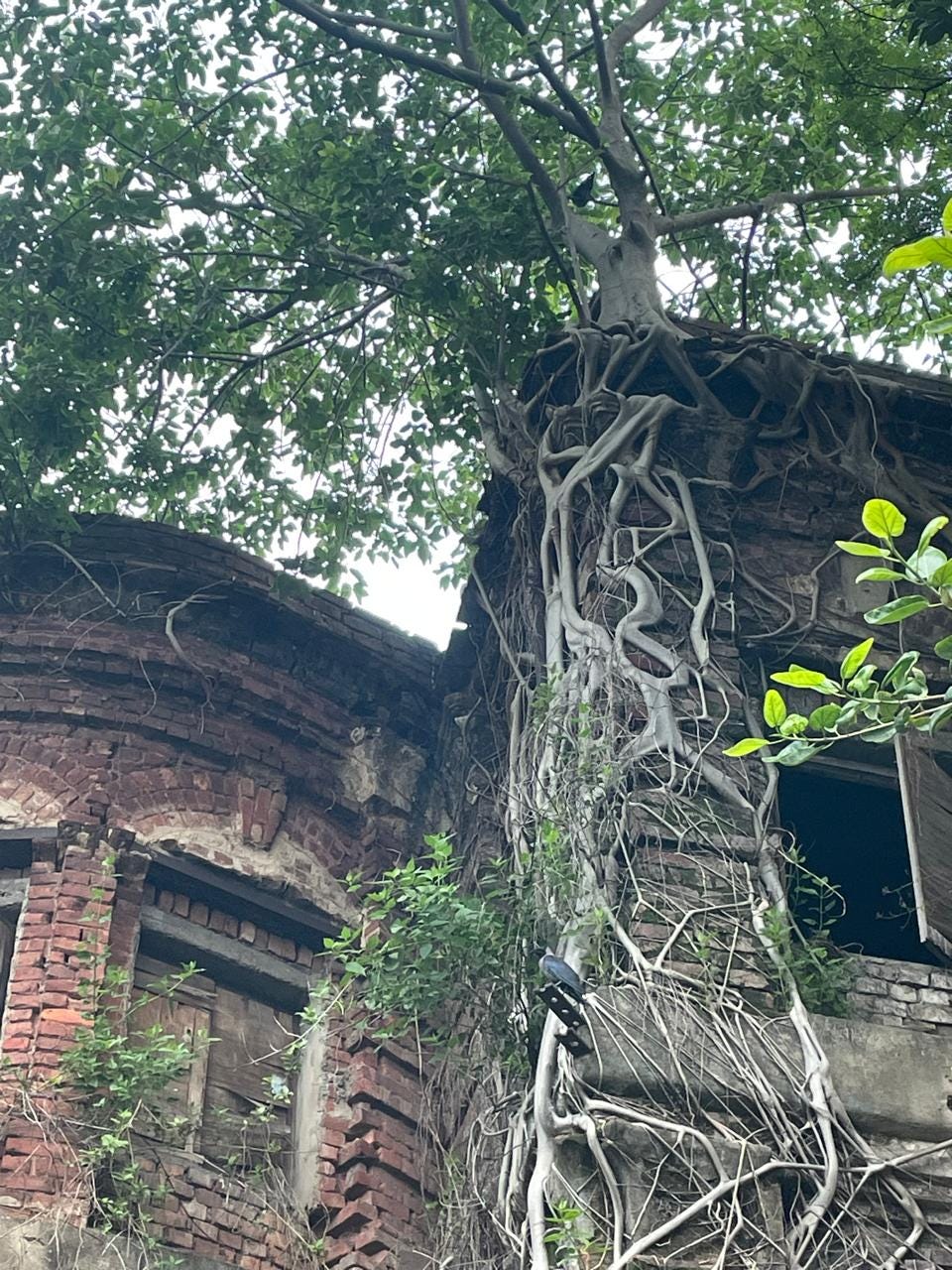I knew the word Nor wester before I had experienced a Kal Baisakhi. It is again one of those very Bengali things – the Bangali lives in hope; is most often unfazed by the heat and humidity because he knows relief is soon to come. And when it does, like many others across the country I suspect the young and the not so young step out and perhaps even sing and dance a bit. I asked a motley group who sing Bengali and Hindi every Sunday morning by the Rabindra Sarobar what songs they associated with rain most often? An interesting list emerged. Rabindranath was not on it. Has Bengal and the Bangali moved on? What is moving on? Is it leaving behind somethings, to pick up others, or adding fresh flavours to our jaded lives? The good doctor asked me why I did not share my song in the group. He gave me a prompt for my essay. So many beginnings with him I think.
A shower which can be anticipated with an overcast sky all morning poses a very practical question. “Should clothes be washed today?” I have of late taken to looking at the weather forecast before I run the washing machine. This is the lot of women of a certain vintage who do not allow themselves the luxury of dismissing the deafening sounds of the city and humdrum life itself as “Michhe e jiboner kalorob” (pointless is the noise of life)
It has been like this not today but always. What made Virginia Woolf ask for a Room of One’s Own? That she be not buried under “Sansaare Bhaar”. (the weight of domesticity) Tagore included these quotidian experiences into his songs. How did he realise these emotions? He wrote in response to every emotion, he could not have experienced it all or did he? I think he commissioned himself to document all the joy and grief that was playing out around him. He was a keen observer- he had all the time in the world sailing on the Padma river on the pretext of supervising his estates of Silaidaha- he was a zamindar after all.
Is this my convenient misinterpretation? Perhaps it is. I am not apologetic about it. If a piece of writing is to remain relevant it must bear the brunt of being interpreted afresh time after time and in every circumstance.
I return to this song each time the sky darkens and it pours. “Emono dine tara bola jaaye “ (On a day like this I can speak to her) It speaks of a love which is complete and exclusive between two individuals.
“Taahate e jagote khoti kaar
Naamate paari jodi manobhar”.
If I can unburden myself to you who in the world will be hurt? he asks.
If he were to write in “Aati Kya Khandala” style Bombaiyya lingo – he would ask “Kiska kya jata hai?”
This to me is redolent of a love that is ideal, that one desires but is unattainable. There is no love that has no rules, that is an illusion. It is like me fervently declaring that Madras is the best city in the world, this is the Madras of my mind. There is a Welsh word for it – “Hiraeth“ – a deep longing for something, most often existing only in one’s imagination. This is the love that is imagined, not part of coupledom of many decades. What exists in that space is dead habit and comfort, a familiarity which in the best situations swallows the bitter bile of irritation which is a default response, bears the cross of duty unfailingly and in the worst a benign indifference. Love in these situations is constant - 22/7 Pi “π”– a recurring decimal and all. It obeys the rules of physics too- “Opposites attract. One step forward and two steps back.”
If you need a visual think Charulata and Bhupathi. Bhupathi is a good man; my heart goes out to him, not a wrong bone in him.
Is life all about duty, obligation, right and wrong? Love loses its lustre when it has to be squeezed into cracks and crevices of the building blocks of a life. But it is in these cracks that new shoots take root. It is that bright green leaf on the greying peeling paint that catches our attention.With time the roots take hold, it is that which holds life itself together.
This is also something that the old man knew even if he was married for less than 2 decades. This song is not about fresh love, which is exciting, raw and urgent. This is yet to experience the poignancy that Tagore expresses. It is an emotion which will not be contained by a few letters of the alphabet. He exuded “a mastery over what cannot be said”.
I read many articles this week reviewing Satyajit Ray’s movies particularly his adaptation of Tagore’s works. It is the week when both men were born decades apart and Bengal celebrates them year after year. I search the net to see if my rain song has been used in any Bangla movie I find no references. Would it have been appropriate between Bhupathi and Charulata or Amal and Charulata I wonder? I think the latter. This song is all about what is not said even as it starts by making a confession.
I have always known romantic love as L.O.V.E. I belong to the generation that did not say the words to anyone; now we use it all too freely. It was a taboo word even if spoken in silence. When does Like become Love? Is it a continuum? When a man and a woman meet, there is something that is kindled in one or both. It takes a while to figure it out. It is not always a romantic liaison as we know it, but not quite sterile too. It can even be filial. Perhaps like that between fathers and daughters – it is the tenderness that cannot be missed, the burden that rolls off when rain clouds part.
Like when it is a relationship with a mentor, it is deep, it comes from a place of respect and admiration. It is because he is more than a man ; he is a gentleman. He is a wordsmith. He harnesses the power of words to help others and himself. So he chooses them carefully to preserve this place of trust that is fleeting like the fragrance of lavender. He knows of the dangers when lines are crossed even if he has not read the Ramayana. He knows how homes are built and then rebuilt.. He is not one with the cliched stiff upper lip, he is the consummate tease. And he says with the hint of a smile “You are Hindu – you have the luxury of another lifetime.”






You absorb, encourage others to share, listen and then add to your thoughts. Lovely.
Lovely essay, Charulatha. "“Hiraeth“ – a deep longing for something, most often existing only in one’s imagination." - so many of our memories are of this kind.